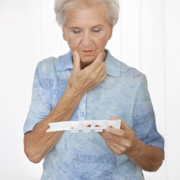Helpful Tips to Control Incontinence
How to Control Incontinence
With the advice and guidance of your Doctor, it is common that incontinence can be treated and possibly cured. With new advances, there are more treatment options today for urinary incontinence than in the past.
Treatment choice depends on the type of bladder control problem, the seriousness, and the best fit to incorporate into one’s daily routine. Common sense suggests trying the simplest and safest treatments first.
Training your bladder – Your doctor may suggest, initially, to start to train your bladder to get back bladder control. By implementing daily bladder training, one can change how the bladder empties and stores urine. The following is an overview of some suggestions for improvement:
Start Kegels and daily pelvic muscle exercise – The pelvic muscles are the ones used to stop urine flow or keep from passing gas. Your Doctor may discuss starting pelvic muscle exercise to strengthen the muscles that you use to stop urinating. Improving the strength of these muscles, helps avoid accidents by holding urine in the bladder for longer periods of time. The exercises your Doctor may suggest are easy to start immediately. Pelvic muscle exercises can lessen or improve stress and urge incontinence.
Typically Doctors suggest that you hold the pelvic muscles for a specific count, and then relax them. Then repeat holding the muscle a number of times. For best results, doing this exercise several times throughout a day improves bladder control. Your doctor will advise you on the best exercise for your concerns.
Diet Plays a Factor – Certain foods and drinks may worsen incontinence such as alcoholic beverages, acidic foods such as citrus juices and fruits, caffeinated drinks and foods, spicy dishes, and carbonated beverages. Chart when urinary incontinence worsens, and what foods or drinks taken, and consider eliminating that food or beverage, or at least cut back on these items.
Track Fluids Taken – Consider keeping daily water intake to a quart. This is a simple suggestion. But, you need to talk to your doctor before making any changes to your fluid intake.
Lifestyle Changes – You can make some changes to diet, or eliminate triggers that can improve bladder control.
Drink Additional Cranberry Juice – Cranberry juice has been known to improve bladder function due to the acidic nature.
Avoid Alcohol and Caffeine – Drinking alcohol and caffeine drinks can lead to incontinence issues. Also, you may be drinking too many fluids a day, instead of water. Consider cutting back on fluid intake if you are drinking too much daily.
Biofeedback – Biofeedback helps one become more aware of body signals. Biofeedback may help one regain control over the bladder and urethra muscles.
Chart Leaking to Determine Pattern – By charting leaking and urination, you may determine a pattern. Once a pattern is identified, go to the bathroom prior to those times to empty the bladder before a leak occurs. When combined with pelvic muscle exercises and biofeedback, these suggestions may improve ability to control urges.
Prescriptions – There are prescriptions a doctor can prescribe for improved bladder control. These varieties of drugs can prevent bladder contractions, and some medications relax muscles so the bladder empties completely during urination. Other prescriptions help to tighten muscles in the bladder and urethra to avoid leakage. However, sometimes, these prescriptions can cause side effects including urine buildup, eye problems, or dry mouth.
Medical Procedures – Try starting diet changes and pelvic exercises. However, if you see no improvement, go to your doctor for advice.
Urethra Implant – To help reduce stress incontinence, your doctor can inject an implant to add bulk into the area around the urethra. Keep in mind, injections may have to be repeated because they are slowly eliminated from the body.
Pessary – Some doctors may advise women to use a tampon-like urethral plug; a throwaway patch; or a vaginal insert to improve stress incontinence.
Surgery – If incontinence is caused by bladder position or blockage due to an enlarged prostate, surgery is sometimes an option. Typical surgery for incontinence pulls the bladder up and secures it. When stress incontinence is serious, the surgeon may use a wide sling, to narrow the urethra and hold up the bladder to prevent leakage.










